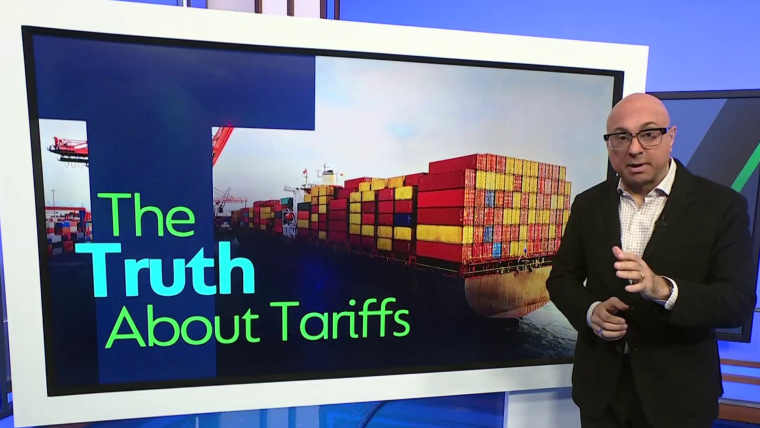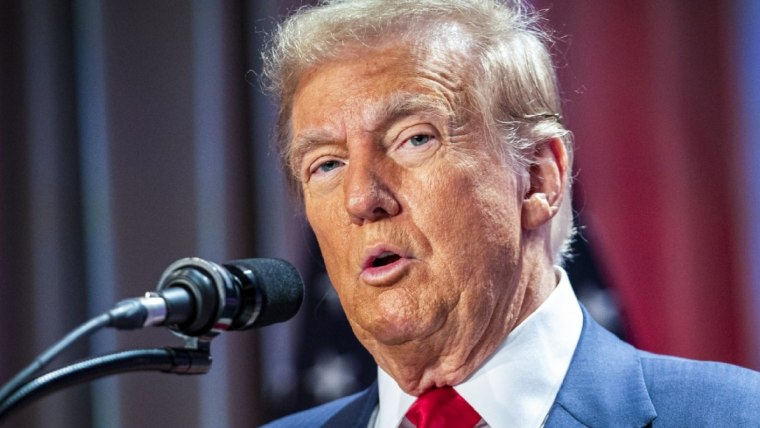President-elect Donald Trump’s announcement that he plans to impose 25% tariffs on all goods imported from Canada and Mexico, and an extra 10% on all Chinese goods on top of existing tariffs, has all the hallmarks of a classic Trump policy proclamation. He considers it a brilliant stratagem, while in reality it’s a terrible idea that he may not even enact. And what he does plan to do may be even worse.
This is an economic story with serious real-world consequences, few of them good. But it’s also a performance, full of bluff and bluster — and a preview of the corruption that will be a hallmark of his second term in office.
As soon as tariffs were enacted in his first term, his administration was besieged by lobbyists.
During the campaign, Trump said he wanted to impose tariffs of 10%-20% on all imported goods, and up to 60% on goods coming in from China; this proposal is just the start. Were these tariffs actually put in place — and again, the jury is still out on whether Trump will actually follow through — they would be devastating to the American economy. In 2023, we imported just under $900 billion worth of goods from Mexico and Canada, everything from avocados to lumber to auto parts. Putting a 25% tariff on all of it would amount to a sales tax of $225 billion — or increased costs of about $1,800 per American household.
Trump’s proposal would also trash the United States-Mexico-Canada Agreement, the free-trade accord Trump himself signed in 2020, and inevitably produce retaliation from the affected countries; Mexican President Claudia Sheinbaum has already said that if Trump imposes these tariffs, Mexico will respond in kind. We saw that in the first Trump administration as well: When he imposed tariffs on Chinese goods, China responded by cutting off imports of American agricultural commodities. American farmers who rely on exports had their livelihoods threatened, so the Trump administration paid them off. In the end, 92% of the revenues brought in by the tariffs — which were essentially paid by American taxpayers — went right into bailouts of farmers, to the tune of over $60 billion.
If the affected population had been people Trump didn’t want to help — let’s say, minority populations living in cities — he may have let them suffer (recall that he initially refused to approve disaster aid to California in 2018 until aides explained how many residents voted for him). But he was happy to have Americans subsidize a bailout for farmers, because rural voters are essential to his base. You can call this approach “transactional,” or you can call it corrupt.

“To me, the world’s most beautiful word in the dictionary is tariffs. It’s my favorite word,” Trump has said, and now he is promising tariffs much more comprehensive than those implemented during his first term. That experience gives us a guide to how his future tariffs will be deployed. As soon as tariffs were enacted in his first term, his administration was besieged by lobbyists, who filed thousands of requests for special exemptions and carve-outs to allow their clients to import goods and parts without paying the tariffs.
And who found favor with the Trump administration? According to one study, companies that had donated to Republican candidates were more likely to get their exemption requests approved; one of the researchers called it “a very effective spoils system.” While small businesses lacked the resources to file for exclusions, bigger corporations and their chief executives could expend the time and money necessary to claim carve-outs.
In a second term, Trump won’t just be doling out favors; he’ll also deliver punishments.
Apple and its CEO, Tim Cook, offer an illustrative case study. Throughout Trump’s first term, Cook buttered Trump up with personal attention, something other CEOs who found Trump personally repugnant were more reluctant to do. As The Wall Street Journal recently reported, Cook tailored a strategy to massage Trump’s ego over a series of meals and meetings in which he would explain how Apple’s interests dovetailed with Trump’s. “That’s why he’s a great executive, because he calls me and others don’t,” Trump would later say. The strategy paid off with tax breaks and changes to Trump’s tariff plan that kept the iPhone safe from price increases that would go into government coffers rather than Apple’s.
In a second term, Trump won’t just be doling out favors; he’ll also deliver punishments. During the campaign he told a fictional story about how John Deere was planning to move jobs to Mexico, but likely changed its plans after he threatened the company with tariffs so high it wouldn’t be able to sell the equipment it made there in the U.S. The story may have been false, but the message was clear: Trump will not hesitate to single out specific companies with penalties (and ensuing abuse from his army of online trolls) if he doesn’t like what they’re doing.
We’ve seen before how personal Trump’s view of the economy is: There are good companies and bad companies, within good industries and bad industries, and the determining factor is whether they treat him like the king he imagines himself to be. Firms looking at this history might reasonably decide that making good products isn’t enough to succeed; they also must win the goodwill of a petty and mercurial president, just as companies do in dictatorships around the world.
And since everyone knows that Trump is not above a personal payoff, they might feel it wise to put money directly in his pocket. There are multiple ways to do so: They could book rooms at his resorts (as many did in his first term), or boost the price of his stock in the Trump Media & Technology Group with a large purchase of shares, or invest in his sketchy crypto enterprise, or perhaps buy a few thousand Trump Bibles or Trump sneakers or Trump watches. This president makes it easy to grease his palm.
Trump believes that tariffs can do almost anything — force other countries to their knees, bring prosperity to the nation, even restore your sense of manly virility. Best of all, they can provide an avenue for him to reward those who please him, hurt those who fail to bend the knee, and maybe even use his office to make a few more bucks. As corrupt as Trump’s first term was, it could pale in comparison to the second.

